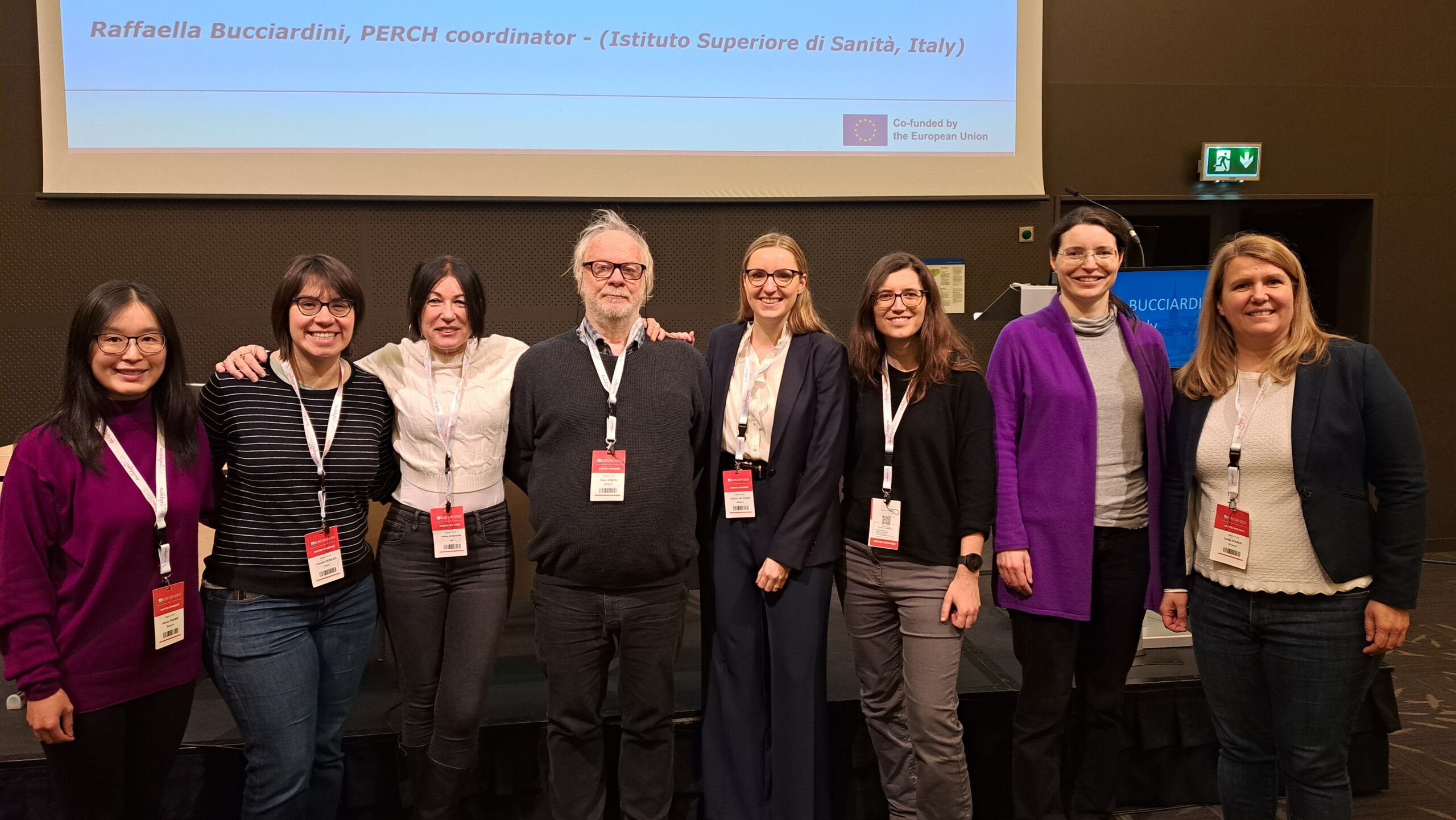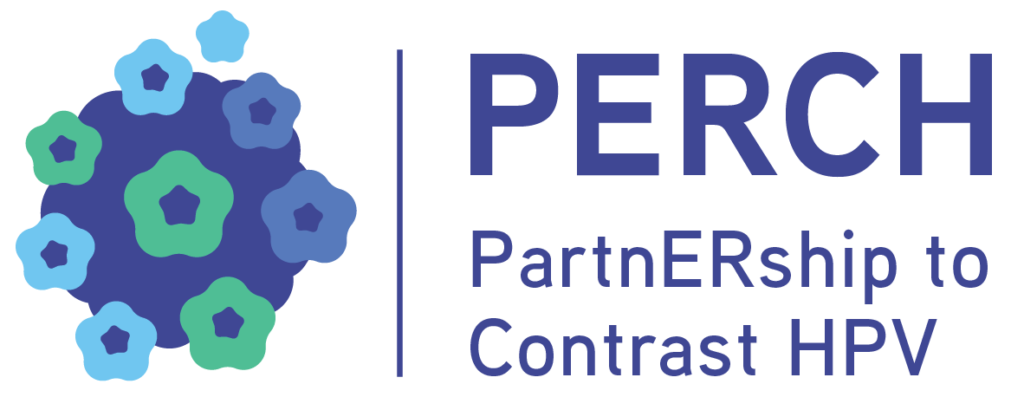
At this year’s EUROGIN Congress in Stockholm, the project was presented by experts involved in the project on Saturday, March 16th in the scientific sessions, chaired by esteemed expert Marc Arbyn and Raffaella Bucciardini, the coordinator of the project. Raffaella Bucciardini from Instituto Superiore di Sanita, Italy had the opening presentation of this European joint action, aimed at enhancing HPV vaccination coverage and data collection.
Effectiveness of HPV Vaccination with One Dose
Jenny Chung’s from Sciensano, Belgium presented groundbreaking findings regarding the efficacy of a single dose of HPV vaccine. Through a systematic review, PERCH examined the protection provided by one dose across various HPV-related outcomes. The results showcased significant protection against targeted and cross-reacting HPV infections and related diseases, reinforcing the importance of vaccination in preventing cervical and other HPV-related cancers. By demonstrating the effectiveness of one-dose of HPV vaccination may trigger an enormous acceleration of WHO’s aim to reach 90% worldwide HPV vaccination among girls before the age of 15.
Implementation of HPV Vaccination in Europe
Also from Sciensano Hélène De Pauw’s analysis provided a comprehensive overview of HPV vaccination implementation across European countries. By analyzing questionnaire responses from 17 participating Member States, the study identified diverse strategies, challenges, and successes in reaching vaccination goals. The findings underscored the importance of tailored approaches, multi-stakeholder collaboration, and robust data collection to achieve optimal vaccination coverage.
Dissemination Strategies to Increase HPV Awareness
Urska Ivanus from Institute of Oncology, Slovenia highlighted the project’s efforts to raise awareness among key stakeholders, including young people, parents, educators, and healthcare workers. PERCH fosters sustainable impact and cross-border collaboration, with Slovenia taking a lead role in stakeholder engagement and communication strategy development. Leveraging social media and an extensive international network, PERCH empowers countries to enhance HPV vaccination uptake. Also, European guidelines are being developed for the preparation of national communication strategies.
Strategies to Train Healthcare Professionals
Miriam Gerlich from Federal Centre for Health Education, Germany emphasized the important role of healthcare professionals (HCPs) in boosting HPV vaccination coverage. By identifying specific training needs and developing a joint curriculum, PERCH aims to equip HCPs with the knowledge and skills necessary to communicate effectively about HPV vaccination. This initiative reflects PERCH’s commitment to addressing barriers and enhancing vaccination efforts at the local level.
Vaccination coverage in Europe
Laia Bruni from Institut Catala d’Oncologia, Spain pointed out, that there are huge differences not only in HPV vaccination coverage by regions, but also in programmes performance between and within countries. An estimated global coverage for the WHO EURO region in 2022 is 37%. Average programme performance was 65% for the first dose and 60% for the second dose. She pointed out that 37 countries in the world are switching to a single dose, in Europe Albania, Estonia, Ireland, Montenegro and the UK. Northern Europe has the highest coverages and is also ahead in terms of boys vaccination.
Linkage of HPV vaccination registries with screening and cancer databases
Marc Arbyn from Sciensano presented data from Individual patient data (IPD) in four European countries linking vaccination and cancer registries, which consistently demonstrate protection against invasive cervical cancer. Protection against pre-cancer and cancer is excellent if vaccinated at young teenage but decreases considerably when vaccinated at older ages. There is a major challenge to perform IPD data collection and linkage within a legal framework., since many countries encounter legal and political/administrative barriers. Only a few countries have the ability to collect vaccination and screening data linked to cancer registry and other data bases. PERCH promotes implementing what Sweden, Denmark, England and Scotland achieved.
Conclusion
The Project PERCH presentation at EUROGIN 2024 showcased a collaborative and multi-faceted approach to combatting cervical cancer through enhanced HPV vaccination strategies. By leveraging research, data, and stakeholder engagement at governmental levels, PERCH is poised to make significant strides towards achieving WHO’s vaccination targets and ultimately eliminating cervical cancer disparities across Europe.
PERCH is also laying the foundations for medium and long-term outcomes:
- Increase HPV vaccine coverage in all European countries in order to reach 90% HPV vaccination among girls before they reach the age of 15 years by 2030;
- Have a common data collection system to improve the monitoring of population coverage and process indicators as well as the impact of HPV vaccination;
- Put in place population-based registers containing individual records regarding HPV vaccination, HPV screening and cancer incidence and mortality, and the linkage between them is essential.


